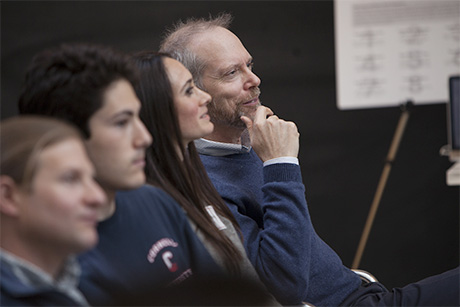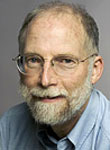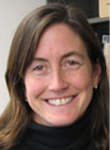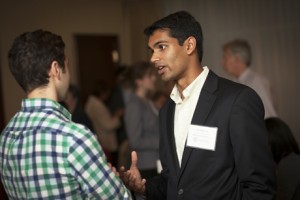Understanding why college students check Facebook so often and whether the stigma of having a father in jail affects elementary school teachers’ expectations of students are just two of many questions social scientists are exploring using research grants awarded last month by theInstitute for the Social Sciences.
Twice yearly, the ISS provides up to $12,000 to social science faculty for research. Priority is given to projects led by tenure-track faculty early in their careers.
Natalya Bazarova, assistant professor in communication, is seeking to understand the gratification and psychological mechanisms, including motivating factors and habit, that drive young adults to check Facebook so frequently.
Christopher Wildeman, associate professor of policy analysis and management, expects that his study working with 300 elementary school teachers – using a research design that manipulates the paternal incarceration status of fictional students – may have implications for policy interventions.
Elaine Wethington, professor in human development and sociology, says: “Little is known about the quality of older couples’ marital relationships and the formation and dissolution of their romantic and sexual relationships." Her research, which focuses on people over age 50, looks at marital quality compared across different age cohorts, the emotional and financial consequences of de-coupling in later life, living arrangements among those who divorced after 50, and the formation of new sexual and romantic relationships in later life.
Sarah Kreps, associate professor of government, is examining the reasons why Americans support humanitarian intervention to promote the welfare of foreign citizens from man-made violence.
Shannon Gleeson, associate professor in labor relations, law and history, explores the collaborations that labor unions, immigrant rights organizations, worker centers and legal-aid groups in the United States have with the Mexican Consulate to enforce workplace rights of immigrant workers.
How do different kinds of experts and organizations in the electric power sector manage the diverse risks – including cyber-attacks, power outages and environmental harm – associated with a “smart” electrical grid? This is a question Rebecca Slayton, assistant professor in science and technical studies, seeks to answer.
To understand the cognitive process guiding environmental preferences, Ricardo Daziano, assistant professor in the School of Civil and Environmental Engineering, will have 600 adults living in New York City complete a Web-based survey of consumers’ willingness to pay to reduce carbon emissions.
By collecting data from college students and their summer internship employers, Poppy McLeod, associate professor, and Alicia Orta-Ramirez, senior lecturer, both in communication, hope to answer the question: “How do students’ campus-based teamwork experiences relate to demonstration of teamwork and other interpersonal skills in the workplace?”
Sofia Villenas, associate professor in anthropology, investigates teaching and learning about racial justice, equity and citizenship that occurs outside traditional classroom settings at festivals, protests and community forums to better understand how adults and youths learn about civics and democratic participation.
A research team led by Chris Barrett, the David J. Nolan Director of the Dyson School of Applied Economics and Management, and funded by the World Bank is examining whether irrigation project improvements and changing water condition stemming from climate change prompt farmers in Nepal to be more receptive to agricultural extension services. The ISS grant will fund the team’s travel.
Assistant Professor Ortiz-Bobea in the Dyson School is using historic French statistical agricultural yearbooks to analyze how government regulation contributed to the emergence of a higher-quality market for wine.
Working with coffee growers in the Popayán region of Colombia, Arnab Basu and Miguel Gómez, professors in the Dyson School, are trying to understand how membership-based organizations affect an individual member’s risk and time preferences and the propensity to trust.
Julieta Caunedo, assistant professor of economics, is using sale and auction price data on used agricultural equipment to help explain how countries adopt new technologies in the agricultural sector. Her work is co-funded by the President’s Council of Cornell Women.
Since the ISS small grant program began in 2005, more than 200 projects have received support. Applications for spring 2015 ISS grants are due Feb. 3, 2015.
Lori Sonken is the staff writer for the Institute for the Social Sciences.
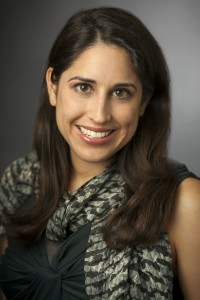 Professor Jane Mendle was named a Institute for the Social Sciences (ISS) fellow-in-residence for the 2015-16 academic year. The program, which is open to associate and assistant professors, “gives exceptionally strong social science faculty members a semester away from the daily demands of teaching and departmental service to advance and publish their scholarship.” ISS fellows are nominated by their department chairs and deans, and selected by an interdisciplinary review committee in a university-wide competition.
Professor Jane Mendle was named a Institute for the Social Sciences (ISS) fellow-in-residence for the 2015-16 academic year. The program, which is open to associate and assistant professors, “gives exceptionally strong social science faculty members a semester away from the daily demands of teaching and departmental service to advance and publish their scholarship.” ISS fellows are nominated by their department chairs and deans, and selected by an interdisciplinary review committee in a university-wide competition.



